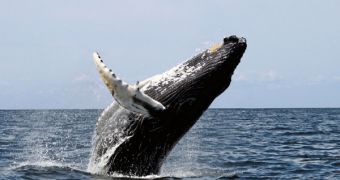The Australian government strongly opposes Japan's policy of studying the whales in the Antarctic by killing them. Seeing how all commercial whaling has been outlawed by an international agreement in 1986, the Far East nation decided to start a "scientific" approach to hunting. Yearly, its fleet captures some 900 whales in the Southern Ocean, which are then studied. And by studying we mean selling.
Over the years, several environmental groups have opposed Japan in its killing spree. Greenpeace (GP) and Sea Shepard are just two of the organizations that dispatched one or more ships, to observe and stop the Asian nation's fleet. Recently, two GP activists were arrested in Tokyo for exposing a whale meat scandal, and showing that the authorities do not respect the ban they signed two decades ago.
The two are under trial, for false accusations of stealing whale meat from the Japanese "scientists." In fact, they handed the whale meat to the government, in an attempt to expose the fact that, every year, whale meat gets "misplaced" when whaling ships return to port, and that the meat goes to commercial use. Instead, they were accused of theft, and the entire international community is currently pressing Japan for their release.
"Modern-day research uses genetic and molecular techniques as well as satellite tags, acoustic methods and aerial surveys rather than grenade-tipped harpoons. Australia does not believe that we need to kill whales to understand them," argued Peter Garrett, the Australian Environment Minister, during a press conference. He also said that last year, along with GP's ship Esperanza, which tracked Nisshin Maru, a Japanese whaling ship, for more than 4300 miles across the Southern Ocean, an Australian vessel was also dispatched in the area, to track Japanese movements.
The Minister says that this year could see another Australian observation ship being dispatched to the sanctuaries near Antarctica, to keep a close eye on what the Japanese fleet is doing in those waters.

 14 DAY TRIAL //
14 DAY TRIAL //